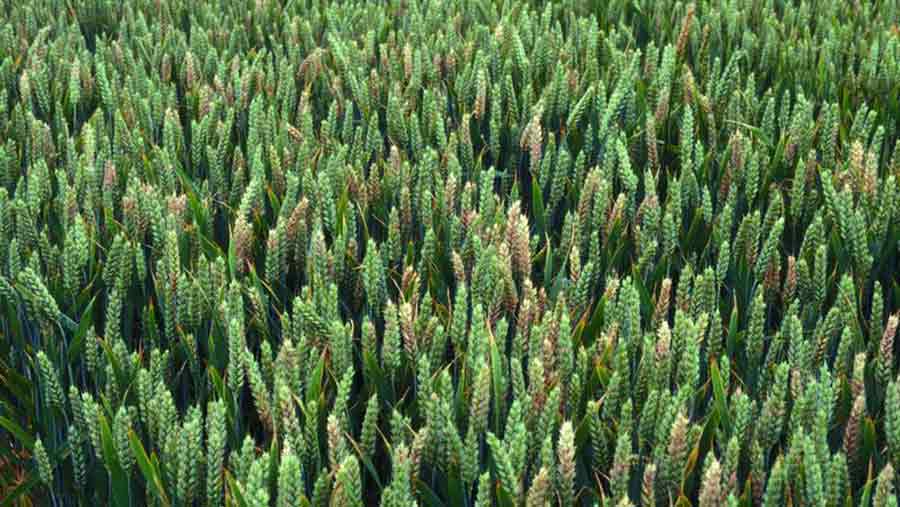Wanted: Infected wheat ears to further fusarium research
 Fusarium in crop © Fera
Fusarium in crop © Fera Research organisation Niab is calling for samples of wheat ears infected with ear blight to gain a better understanding of how fusarium species affect the UK crop.
Unlike wheat diseases such as yellow rust and septoria, where annual monitoring keeps a close eye on population dynamics, relatively little is known about fusarium in the UK.
This is largely due to ear blight not being perceived as a major disease and making only sporadic appearances in crops, but the risk is increasing due to a growing maize area and a shift to minimum tillage and direct drilling.
To address this increased risk, Niab and Cambridge University PhD researcher Franziska Fischer is conducting a survey of fusarium to gain a more accurate picture of UK populations.
See also: A guide to the key fusarium ear diseases in wheat
The disease infects wheat ears when flowering coincides with wet weather and this year, persistent showers through June for some parts of the country have resulted in fusarium symptoms appearing in many crops.
Miss Fischer says unlike 2012, when microdochium species dominated, the infection she has seen this year looks like classic fusarium and provides the ideal opportunity to take samples before senescence ends and the disease becomes difficult to spot.
“We have had a lot of questions from growers at open days and they are definitely seeing an increase. We need to get a better understanding to pre-empt the risk factors in the future,” she adds.
Sampling is very simple and requires growers or agronomists to take whole infected ears from the field and place them in a standard paper envelope, without wrapping them in plastic.
Envelopes should include details of the variety, postcode location where taken and the sender’s name and contact details, including email address, so results can be shared once analysis is carried out.
Envelopes should be addressed to ‘Freepost Niab fusarium survey’, with no postage stamp required.
For a guide to spotting fusarium symptoms and further details about the project, visit the Niab website. Miss Fischer can be contacted via email at franziska.fischer@niab.com

